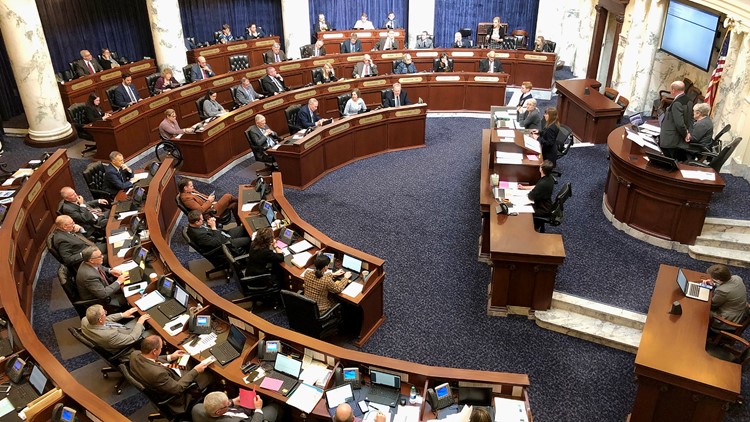Idaho lawmaker Barbara Ehardt was on her evening walk back in 2018 when she was struck by worry. The longtime basketball coach had recently heard about some talented transgender athletes — a pair of high school girls from Connecticut who were regularly winning sprint championships.
What if that happened in Idaho, Ehardt wondered? Would some of the cisgender students she loved to coach be pushed to the side?
The conservative Republican representative from Idaho Falls decided she would take action, and last year Idaho passed the nation's first ban on transgender athletes in women's sports. The concept — which opponents say is unconstitutional, sexist and bigoted — has since spread across the country, with more than 20 states currently considering similar laws. Some, like Montana, have been aided by Ehardt in the effort.
Yet the vast majority of lawmakers sponsoring the measures can't cite any actual instances in their states where such participation has caused problems. And opponents say it's unfortunate that Idaho — a state that promotes itself as "Too Great for Hate" — created a template being used to target transgender athletes nationwide.
"It's a horrible thing for us to be exporting to our neighbors and other states across the country," said Jennifer Martinez, political director for the LGBTQ+ advocacy group Add The Words, Idaho. "It's a solution in search of a problem, based in hatred and ignorance and a lack of willingness to understand the communities that aren't their own."
Ehardt acknowledges that before her bill was introduced she didn't know of a single instance in which a transgender girl had actually joined a sport team in Idaho. She maintains she believes people should be able to identify however they choose, but regularly uses terminology that LGBTQ+ advocates find offensive, like referring to transgender girls by the sex they were assigned at birth instead of by the gender they are.
"It had been shared to me by a couple of high school athletic directors — but they didn't want to go on the record — where they were almost faced by that situation and the biological male didn't want to pursue it," she said. In one case, that decision by the athlete came after the coach threatened to quit coaching, she claimed.
Ehardt said the preemptive strike was necessary to prevent the situation from occurring in Idaho. She thinks separating children based on the sex they are assigned at birth keeps the playing field fair for cisgender girls.
"It's kind of the issue that it's unfair to the kids to think that we would deal with this after there's a child already on the team. How fair would that be to the biological male?" Erhardt said. "And it's cruel and unfair to the girl whose spot was displaced."
Ehardt's law has been blocked by a federal court while a lawsuit challenging its legality is underway.
Martinez said advocates should watch the case and any similar legislation closely.
"It's unfortunate that Idaho is leading the way in legislation and policy suggestions that are rooted in bigotry," she said.



